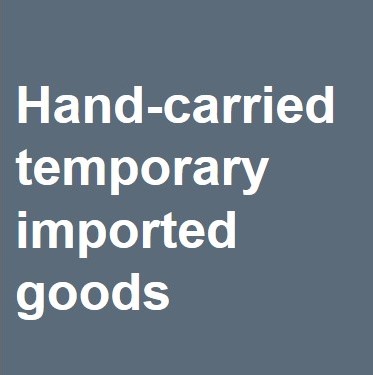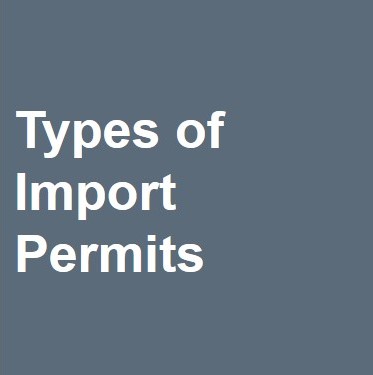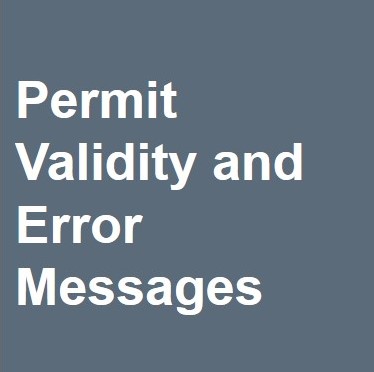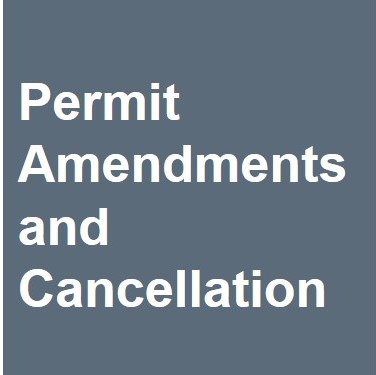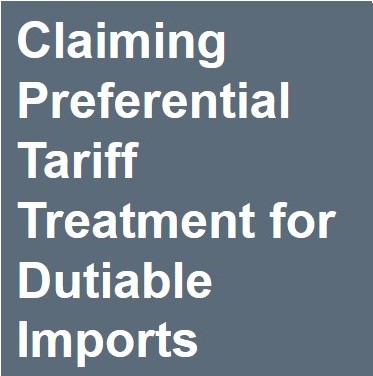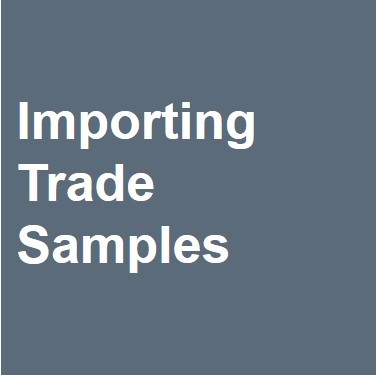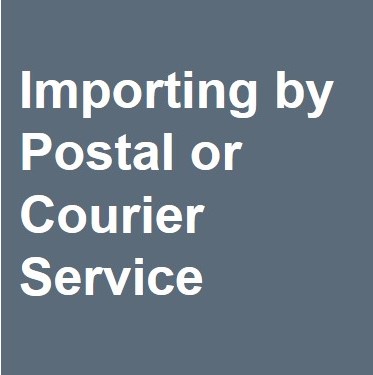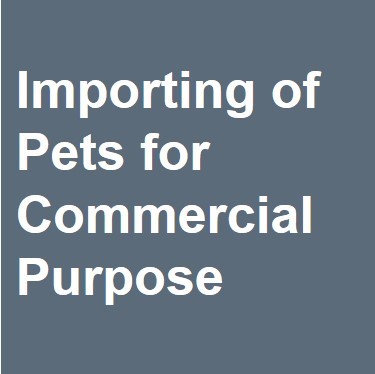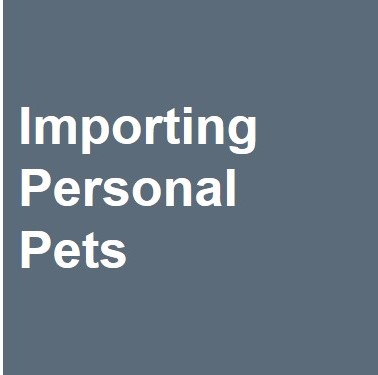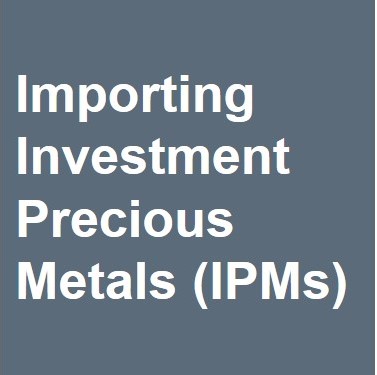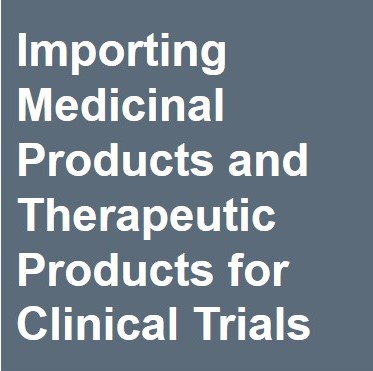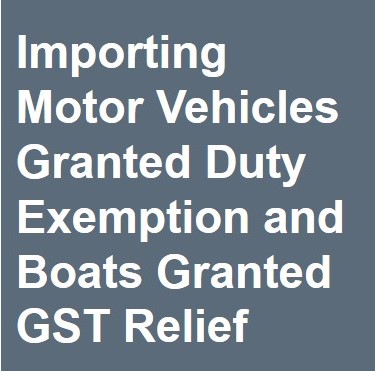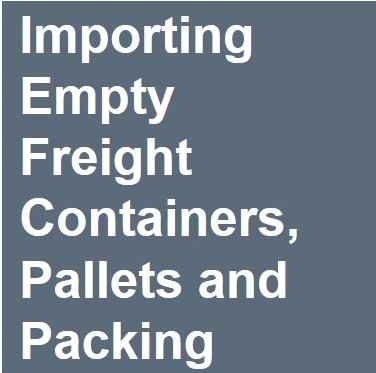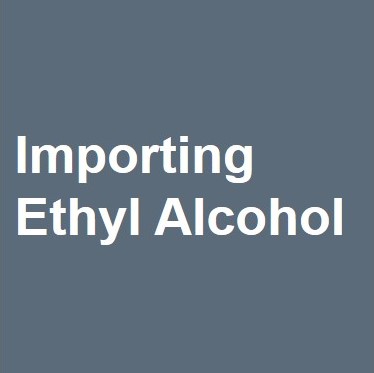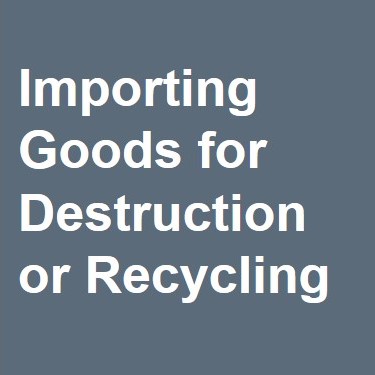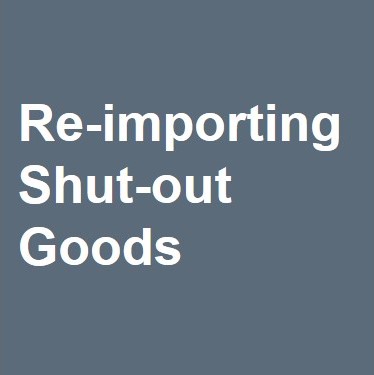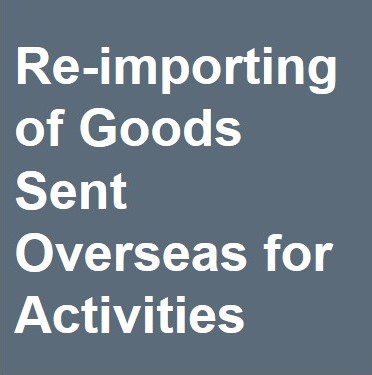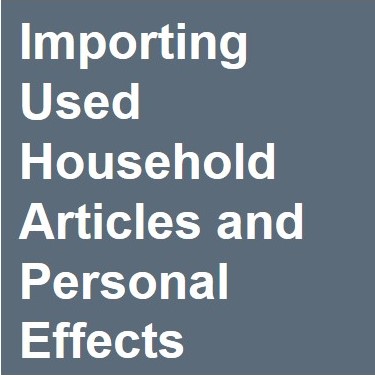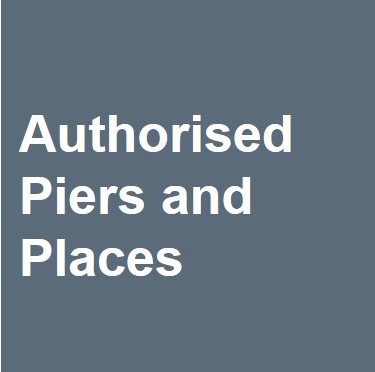Import procedures
Import Procedures
All goods imported into Singapore are regulated under the Customs Act, the Goods and Services Tax (GST) Act and the Regulation of Imports and Exports Act.
Imported goods are subject to GST and/or duty payment. A customs permit is required to account for the import and tax payment of the goods.
Dutiable goods, which incur both GST and duty, are:
-
Intoxicating liquors
-
Tobacco products
-
Motor vehicles
-
Petroleum products
Ad valorem or specific duty rates may be applied for dutiable goods.
All other goods are non-dutiable and incur GST only. Prevailing GST rate is levied on the CIF (cost, insurance and freight) value, which includes duties (if it is a dutiable good) and other charges, costs and expenses incidental to the sale and delivery of the goods into Singapore, whether or not shown on the invoice.
Find out more about duties and GST.
Import Requirements
Before the actual importation, the importer is required to obtain a customs permit.
The importer is the party who imports the goods into Singapore:
-
For their own account or use; or
-
For the account or use of some other person
If an overseas company sold goods to a local company and the commercial invoice indicates the local customer as the consignee, the local customer will be the importer of the goods.
Please see the types of Customs permits and situations where no customs permit is required for more information.
Taxable companies should also check with the Inland Revenue Authority of Singapore (IRAS)on the arrangements to account for the GST.
Visit links below for more information on Importing requirements:
Errors & Offences
Importers may be penalised if they do not comply with the requirements imposed under the Customs Act, the Regulation of Imports and Exports Act (RIEA), and their subsidiary legislation.
Examples of Common Errors and Corrective Actions
-
- Import permit is not utilised
You may submit an amendment or cancellation request via TradeNet and specify the reason for amendments (e.g. extend permit validity) or cancellation. Certain permit fields are not amendable if there are controlled, prohibited or dutiable goods involved. Please refer to the list of non-amendable fields for more information. If you are unable to amend or cancel the permit, you may wish to lodge a Voluntary Disclosure to Customs. If the payment permit cannot be amended or cancelled, you may submit a refund request via TradeNet and specify the reason for refund. There is no need for you to submit a Voluntary Disclosure to Customs.
- Import permit is utilised
Amendments and cancellation are generally not allowed for import permits which have been utilised for clearance. If you have detected any errors in such permits where amendment or cancellation is not allowed, you may wish to lodge a Voluntary Disclosure to Customs.
- Import permit is not utilised
-
- Information wrongly declared on an In-Non-Payment (Approved premises/ schemes) permit by an approved Major Exporter Scheme (MES) trader
If the permit was utilised for cargo clearance, the approved MES trader should inform the Inland Revenue Authority of Singapore (IRAS) of the correction(s) to be made during the MES trader’s periodic reporting in GST returns to IRAS. The corrections are to be supported by the relevant supporting documents (e.g. commercial invoices and appropriate shipping documents).
- Wrong importer name and UEN declared
The declaring Agent (DA) needs to obtain a replacement In-Non-Payment "Approved Premises/Schemes" (INP-APS) permit with the correct MES trader declared as the importer. Thereafter, the DA should submit a copy of the original permit and replacement permit together with the relevant supporting documents (e.g. commercial invoices and appropriate shipping documents) via the Customs Documentation Enquiry Form to request for invalidation of the unused replacement permit. Only the importer’s name and UEN should be amended; all other permit fields should remain unchanged.
- Information wrongly declared on an In-Non-Payment (Approved premises/ schemes) permit by an approved Major Exporter Scheme (MES) trader
-
- A payment permit was taken up instead of an In-Non-Payment "Approved Premises/Schemes" (INP-APS) permit for a MES trader
The In-Non-Payment "Approved Premises/Schemes" (INP-APS) permit should be obtained at the time of importation. A replacement permit is not required as the In-Payment (IPT) permit had been utilised i.e. used for cargo clearance. If you are the DA and had paid the GST, you may approach the importer for the reimbursement of GST paid. The importer can claim the GST paid as input tax in his GST return to IRAS.
- Wrong importer declared in an In-Payment permit
For a payment permit with the wrong importer details, a replacement payment permit with the correct importer’s UEN and name must be obtained for the said consignment. Please note that for incorrect foreign values declared, the exchange rates to be declared shall be based on the initial permit. The importer or DA may submit a request for refund of the duty and/or GST paid for the wrong permit via TradeNet and specify the reason for refund.
- Wrong value of goods declared in an In-Payment permit
A short-payment permit application is required to be taken up to account for the short-fall in duty and/or GST paid for goods that had been imported and declared previously. If there is any over-payment or wrong payment of duties and/or GST, the importer or DA may submit a request for refund of the duty and/or GST paid for the wrong permit via TradeNet and specify the reason for refund.
- Wrong information declared in a customs permit
If you are unable to amend the permit, you may wish to lodge a Voluntary Disclosure to Customs.
- A payment permit was taken up instead of an In-Non-Payment "Approved Premises/Schemes" (INP-APS) permit for a MES trader
Examples of Common Offences
-
- Omission of insurance charges in the value when declaring GST Payment permit to import goods
- Free gifts provided by overseas supplier not declared in the GST Payment permit
-
- Undeclared goods found inside container imported into Singapore
-
- Failure to produce documents such as invoice, bill of lading or certificate of origin for verification
-
- Haulier failing to produce the goods and customs permit with supporting documents for endorsement at the checkpoint
-
- Unauthorised breakage of Customs red seal affixed on the container
For minor offences under the Customs Act and the RIEA, Singapore Customs may offer to compound the offences for a sum not more than S$5,000 per offence. Offenders may be prosecuted if the offences committed are of a fraudulent or serious nature.
Penalties Upon Conviction for Key Offences
| Offence | Penalty Upon Conviction |
|---|---|
| Making an incorrect declaration.
(Section 128(1)(a)of the Customs Act) |
A fine not exceeding S$10,000, or the equivalent of the amount of the customs duty, excise duty or GST payable, whichever is the greater amount, or imprisonment for a term not exceeding 12 months, or both. |
| Making an incorrect or incomplete declaration on the value of goods imported into or manufactured in Singapore for the purpose of assessment of duty or GST.
(Section 128(1)(c)of the Customs Act) |
A fine not exceeding S$10,000, or the equivalent of the amount of the customs duty, excise duty or GST payable, whichever is the greater amount, or imprisonment for a term not exceeding 12 months, or both. |
| Failure to make a declaration of goods imported into, exported from or transhipped in Singapore
(Section 128B(1)(a) of the Customs Act) |
A fine not exceeding S$10,000, or the equivalent of the amount of the customs duty, excise duty or GST payable, whichever is the greater amount, or imprisonment for a term not exceeding 12 months, or both. |
| Failure to make a declaration of the value of goods imported into or manufactured in Singapore for the purpose of the assessment of duty or GST.
(Section 128B(1)(b) of the Customs Act) |
A fine not exceeding S$10,000, or the equivalent of the amount of the customs duty, excise duty or GST payable, whichever is the greater amount, or imprisonment for a term not exceeding 12 months, or both. |
| Failure or refusal to produce trade documents upon demand by Singapore Customs.
(Section 128C of the Customs Act) |
A fine not exceeding S$10,000, or the equivalent of the amount of the customs duty, excise duty or GST payable, whichever is the greater amount, or imprisonment for a term not exceeding 12 months, or both. |
| Failure to comply with conditions imposed by Singapore Customs on the removal of goods from customs control.
(Section 27(1)(c) of the Customs Act) |
A fine not exceeding S$5,000. |
| Making a false declaration.
(Section 28(1)(a) of the RIEA) |
A fine not exceeding S$10,000, or imprisonment not exceeding 2 years, or both. |
| Importing, exporting or transhipping goods without permit
(Regulation 3(1) of the Regulation of Imports and Exports Regulations [RIER]) |
First conviction:
A fine not exceeding S$100,000 or 3 times the value of the goods, whichever is greater, or imprisonment not exceeding 2 years, or both. Second or subsequent conviction: A fine not exceeding S$200,000 or 4 times the value of the goods, whichever is greater, or imprisonment not exceeding 3 years, or both. |
| Unauthorised tampering/opening/breaking/altering or removing of customs lock, seal or other safeguards placed on containerised dutiable goods.
(Regulation 16(4) of the Customs (Container) Regulations) |
A fine not exceeding S$5,000. |
Read more about the prescribed offences and penalties under the Customs Act and the RIEA.
Best Practices
You are accountable as an importer or declaring agent for the import of goods. You are encouraged to observe the following Dos and Don’ts to improve your compliance with regulatory requirements.
-
✔ Inform Singapore Customs if there is any change in your company’s particulars to ensure you receive timely updates on regulatory changes.
✔ Know the import procedures and declaration requirements before you import. Check with the relevant Competent Authority on the requirements to import controlled items.
✔ Know the contents of each consignment you import and clarify with relevant parties if needed.
✔ Ensure you provide all supporting documents and information for permit applications to your Declaring Agents.
✔ Include freight and insurance charges in the declared value of imported goods.
✔ Declare any additional goods (for example, samples, gifts and free-of-charge items).
✔ Ensure the product details (for example, Harmonized System (HS) code, quantity, description) are correctly declared.
✔ Ensure you and your Declaring Agents and freight forwarders comply with all the permit conditions.
✔ Apply for Customs supervision for unstuffing of container if the container is affixed with the Customs red seal.
✔ Keep your supporting documents for a minimum of 5 years.
-
✖ Make a declaration without verifying the authenticity of all the supporting documents.
✖ Use a pro-forma invoice for permit application.
✖ Declare a nominal value for samples, gifts or free-of-charge items. You should declare the value based on the transaction value of identical or similar goods or other acceptable valuation methods.
✖ Declare the country of the port of loading as the country of origin, when the goods actually originate from another country.
✖ Share your TradeNet user ID and password with other persons.
✖ Use your company’s UEN to import goods not belonging to you unless you are acting as a consolidator for customers without a UEN. In doing so, you are responsible for complying with all the regulatory requirements.


